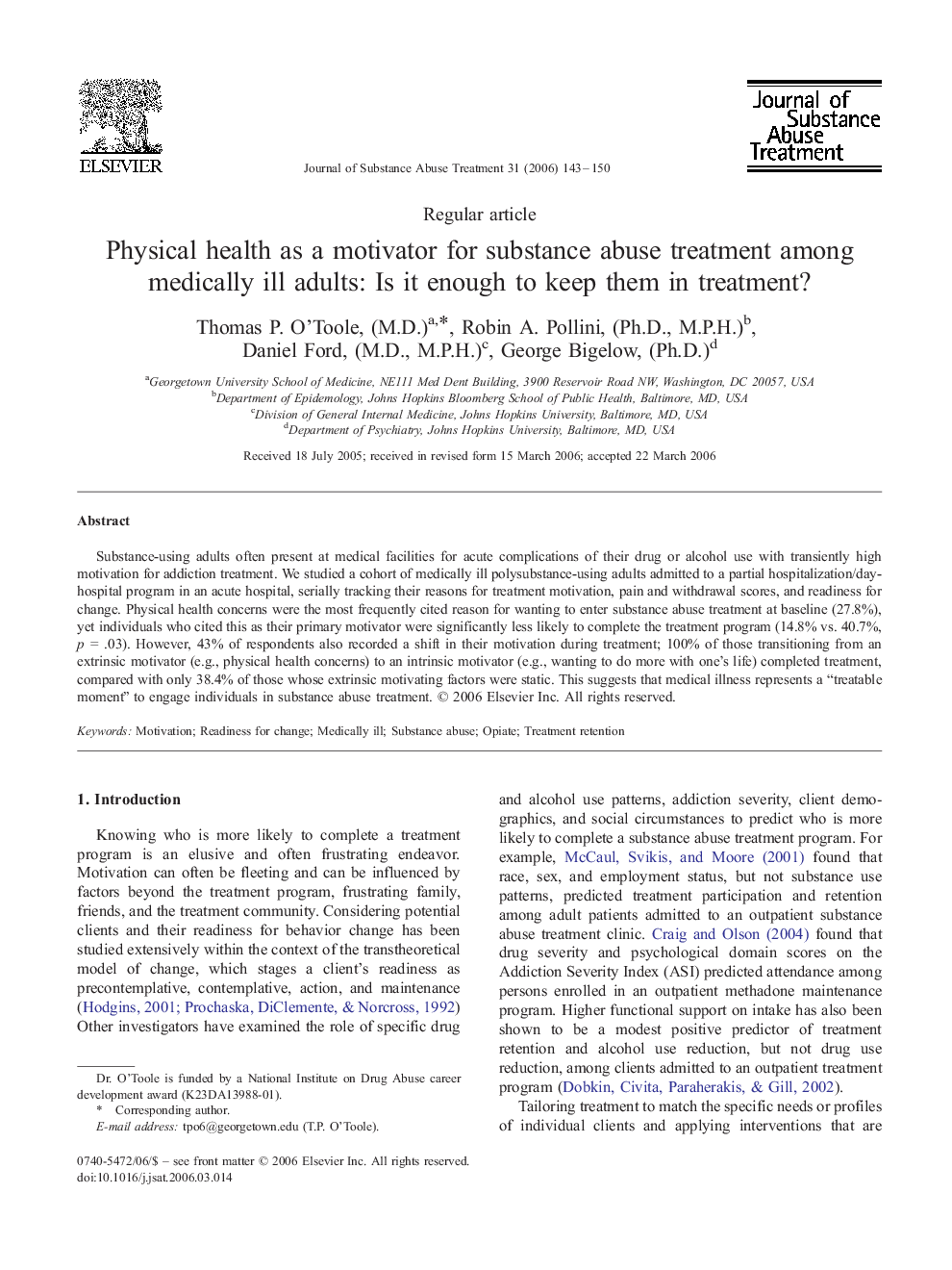| Article ID | Journal | Published Year | Pages | File Type |
|---|---|---|---|---|
| 330145 | Journal of Substance Abuse Treatment | 2006 | 8 Pages |
Substance-using adults often present at medical facilities for acute complications of their drug or alcohol use with transiently high motivation for addiction treatment. We studied a cohort of medically ill polysubstance-using adults admitted to a partial hospitalization/day-hospital program in an acute hospital, serially tracking their reasons for treatment motivation, pain and withdrawal scores, and readiness for change. Physical health concerns were the most frequently cited reason for wanting to enter substance abuse treatment at baseline (27.8%), yet individuals who cited this as their primary motivator were significantly less likely to complete the treatment program (14.8% vs. 40.7%, p = .03). However, 43% of respondents also recorded a shift in their motivation during treatment; 100% of those transitioning from an extrinsic motivator (e.g., physical health concerns) to an intrinsic motivator (e.g., wanting to do more with one's life) completed treatment, compared with only 38.4% of those whose extrinsic motivating factors were static. This suggests that medical illness represents a “treatable moment” to engage individuals in substance abuse treatment.
